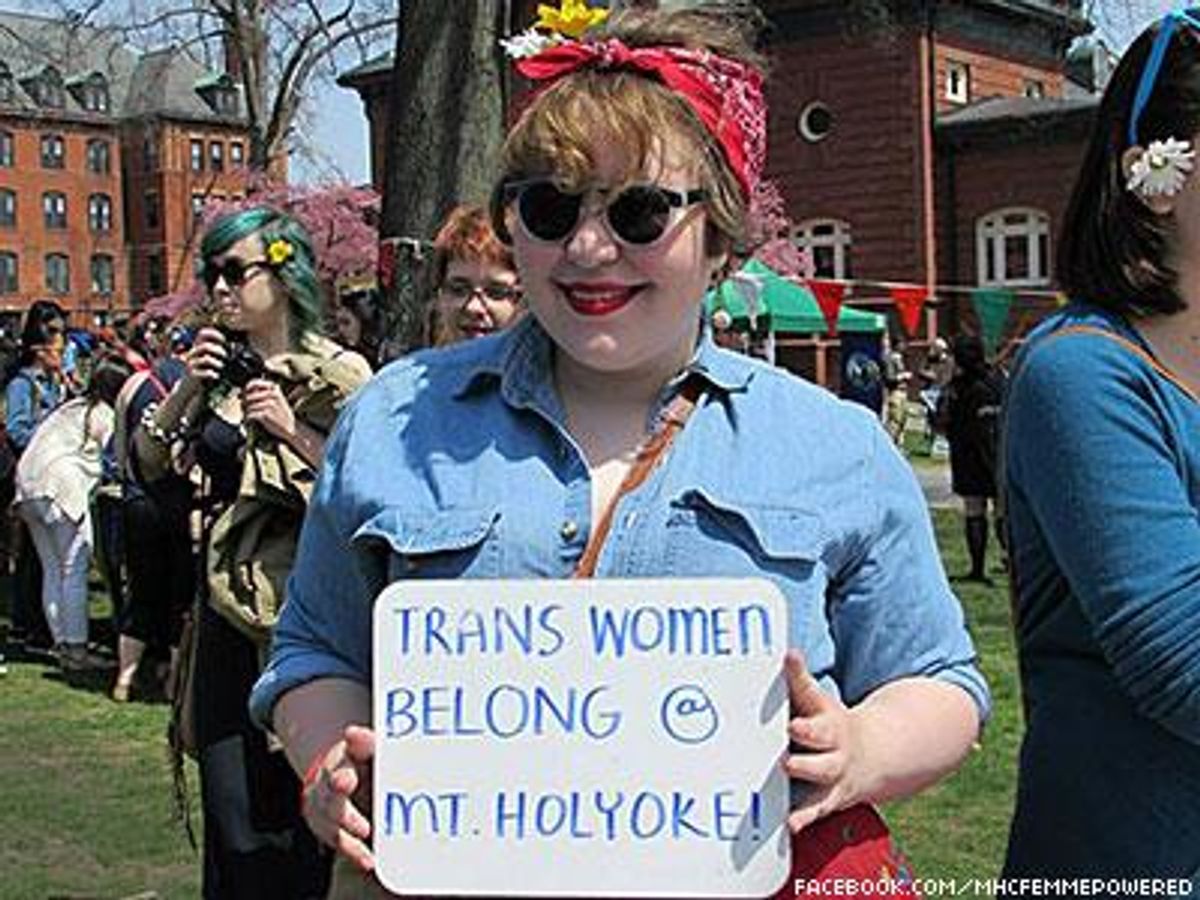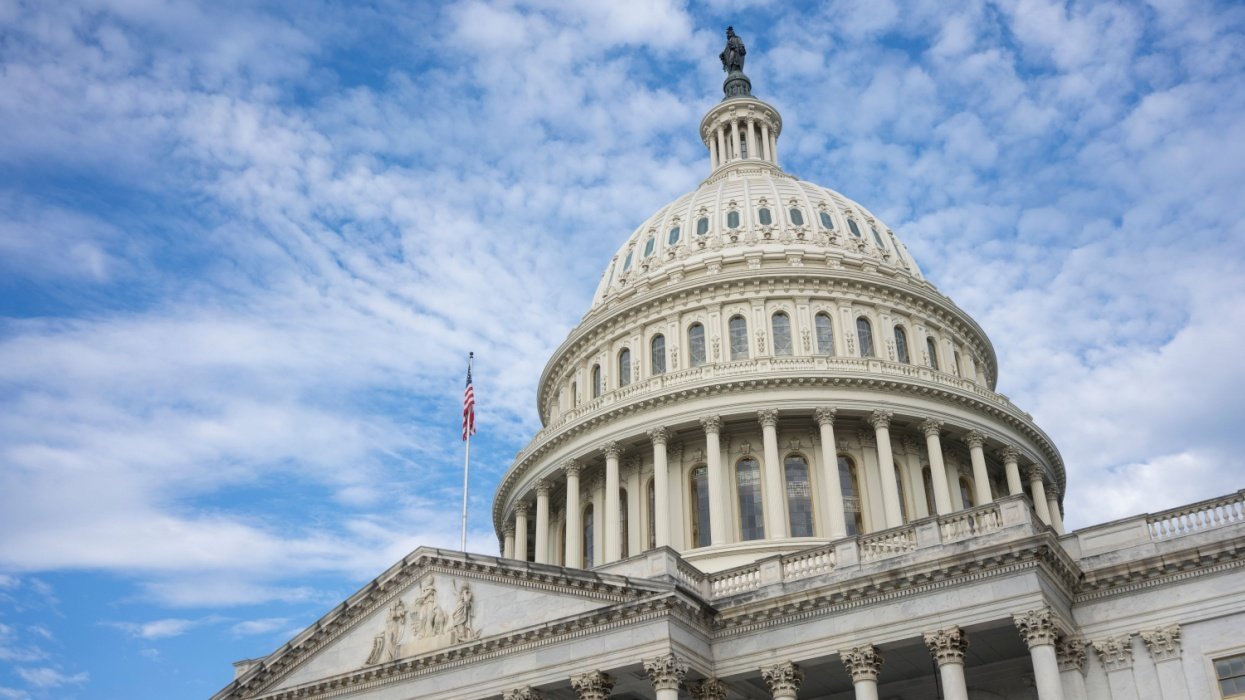On Tuesday, Mount Holyoke College's president Lynn Pasquerella announced during an opening Convocation ceremony that the school will explicitly accept applications from all transgender people.
Prior to this policy change, the school's stance towards transgender women, in particular, had remained unarticulated.
In previous years, trans women who had not updated the gender on their legal identification documents were not considered for admission to the school. However, over the years, many transgender men have attended Mount Holyoke.
According to Kate Winick, a Mount Holyoke alum who now writes for Elle, the school has long adhered to an "informal" policy whereby trans men who were admitted with a "female" gender listed on their applications were "fully supported" in undergoing their transitions on-campus.
As of yesterday, Mount Holyoke's admissions office aims to be "proactive" in clarifying the school's stance, stating on its website that the Massachusetts college "welcomes applications for our undergraduate program from any qualified student who is female or identifies as a woman."
The policy also clarifies the school's stance towards transgender men, stating that anyone who is "Biologically born female [and] identifies as a man" can be allowed admission. Only cisgender men -- those "Biologically born male [who] identif[y] as a man" -- are disqualified from consideration.
It is worth noting that this wording does not mean transgender men are actually female, but instead appears to be an attempt to validate the various iterations of gender identity which potential applicants may embody.
In accepting both transgender men and women, as well as all people with nonbinary genders, Mount Holyoke's trans-inclusion extends beyond even that of Oakland, Calif.'s Mills College which, earlier this month, became the first single-gender school in the country to explicitly open admissions to trans women and nonbinary people assigned "female" at birth.
Mount Holyoke's admissions site addresses numerous questions the institution expects to receive about its stance, including a fraught one that has kept other Seven Sisters -- including, most publicly, Smith College -- from admitting trans women:
"Is Mount Holyoke College changing the fundamental nature of its missions as a women's college by admitting transgender students?" asks a question on the new policy's FAQ page.
"Traditional binaries around who counts as a man or woman are being challenged by those whose gender identity does not conform to their biology," reads the response. "Just as early feminists argued that the reduction of women to their biological functions was a foundation for women's oppression, we must acknowledge that gender identity is not reducible to the body."
Among the other traditional "Seven Sisters" schools -- which also include Barnard College, Bryn Mawr College, Smith College, Wellesley College, Radcliffe College, and Vassar College -- several remain vague in their stances towards trans female applicants. Vassar and Radcliffe (which merged with Harvard in 1972) are now co-educational institutions.
Smith College, in particular, came under criticism last year when it denied an application from trans student Calliope Wong because she was not legally recognized as female in her home state of Connecticut.
After a Change.org petition gathered 4,000 signatures in support of Wong, Smith's dean of admissions, Debra Shaver, announced in May that a committee would begin meeting this September to discuss the needs of prospective trans students. In the meantime, Smith officials say they have temporarily stopped rejecting applications from trans women.
Still, this step is far from those of Mount Holyoke, which proudly states on its admissions site, "As a leader in higher education for women, we choose to be proactive. We choose to define membership in a women's college expansively to be as inclusive as we can with respect to gender identity[.]"
Watch college president Pasquerella announce the historic policy change in the video below (beginning at the 39-minute mark).

















































































